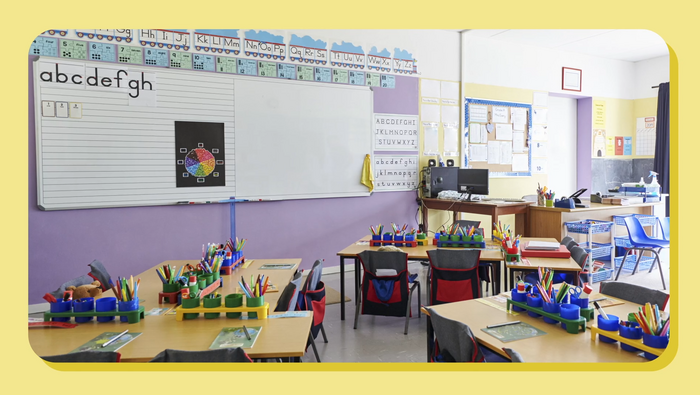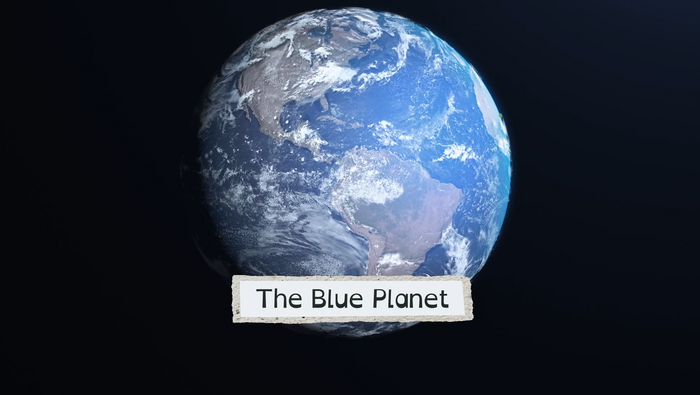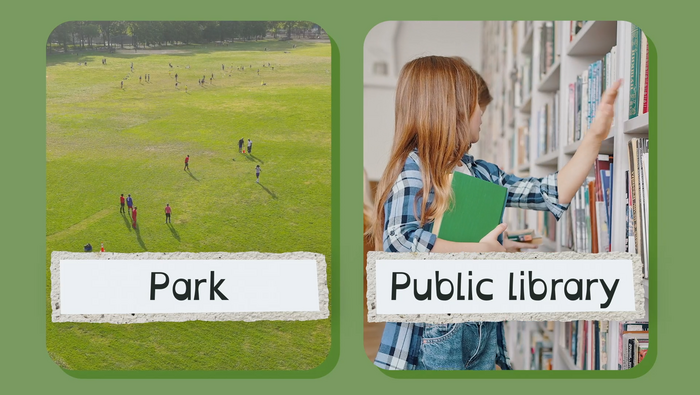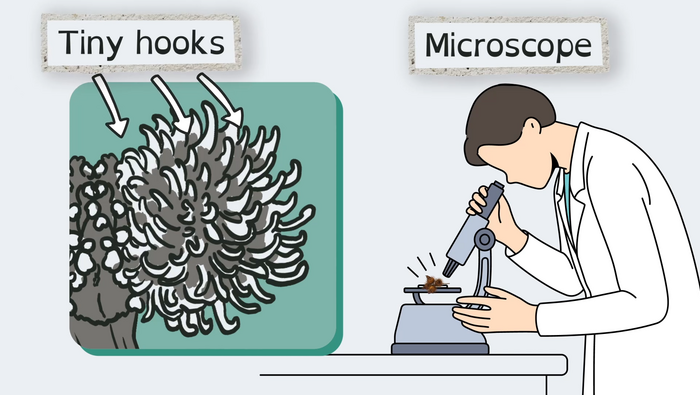
Biomimicry
Nature offers valuable lessons through biomimicry. Scientists and engineers study how animals and plants function, then mimic their smart designs to solve problems. For instance, velcro was inspired by burrs, and the Kingfisher's beak shape improved the Japanese bullet train. Even wind turbine blades imitate a humpback whale's fin for efficiency. Nature holds endless wisdom if we observe closely.
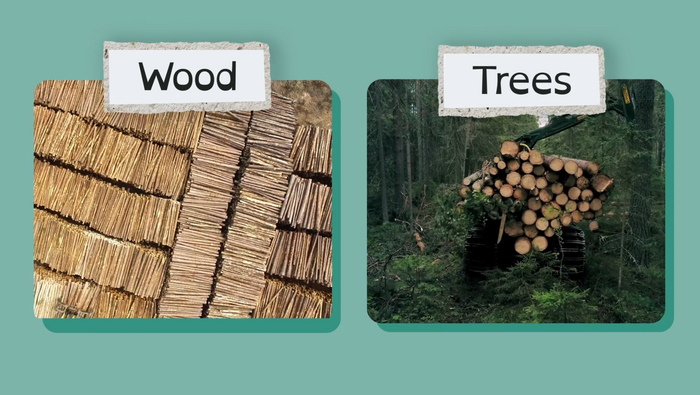
The Origin of Natural Materials
Natural materials like wood, water, and plastic don't vanish from Earth. Gravity is the force holding them here. Wood burning turns into carbon dioxide, which trees use to grow. Everything on Earth, including waste, stays in a cycle - it doesn't disappear, it changes form.
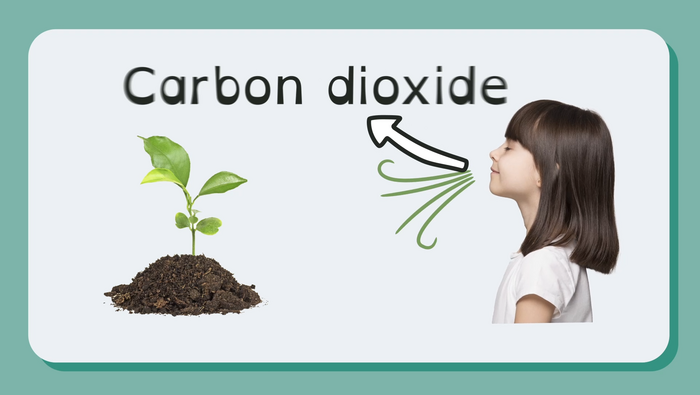
The Web of Life
The Earth supplies the essentials for human, animal, and plant life. We breathe air, which is made of different gases, including oxygen. Plants release oxygen, and we give them carbon dioxide. Water, rain, and healthy soil help plants grow. It's vital to care for our environment since we all rely on each other.
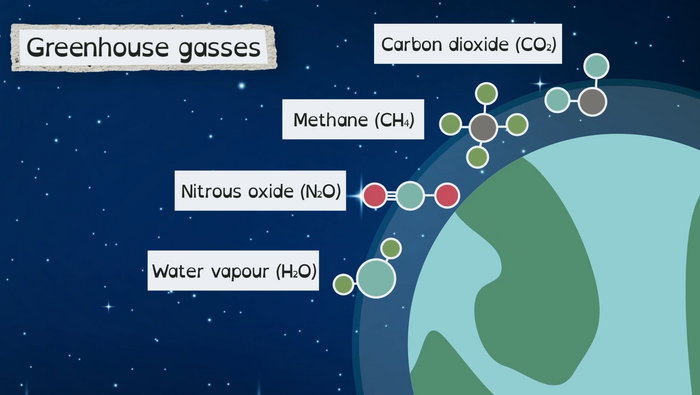
The Greenhouse Effect
The Greenhouse Effect is Earth's natural temperature regulation system, consisting of greenhouse gases like carbon dioxide. It traps heat from the sun during the day and maintains warmth at night. Human activities, like burning fossil fuels, disrupt this balance, causing global warming and climate instability.

GDP vs Quality of Life Indicator
GDP per capita measures a country's money-making but it doesn't show the whole picture. Important factors like time with family, health, and clean air matter too. New indicators like GPI and HDI look at these factors for a better view of a country's progress. A high GDP can be good, but it doesn't guarantee a good quality of life for everyone or a healthy environment. We need to consider more than just money to understand a country's development.

The Lifecycle Of a Car
Cars are constructed from metal, sourced from rocks known as iron ore. Assembly lines, equipped with machines, piece them together. When cars age, they can be recycled, contributing to the creation of new items like new cars or bicycles, a sustainable method to repurpose valuable Earth materials.
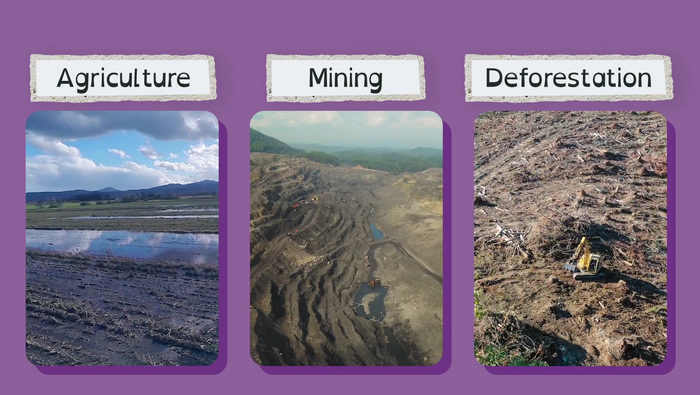
Reversing Climate Change
Climate change is a big problem caused by global warming. Planting more trees can help because trees absorb carbon dioxide, which is a major cause of global warming. Trees also prevent soil erosion and provide wood but there are challenges to consider, like which trees to plant and how long it takes to make a difference. Even though it's not easy, we should still try to find solutions to fight climate change.

Problems vs Symptoms
Sometimes, it's hard to tell if something is a symptom or the real problem. Think of it like when you have a cold. Runny nose, fever, and headaches are symptoms, but the virus causing them is the real problem. Doctors treat the symptoms while your body fights the virus. In the same way, climate change shows signs like rising sea levels and more wildfires. But the real problem is global warming caused by the greenhouse effect. This effect is natural, but human activities release too many gases, like carbon dioxide, which traps extra heat on Earth. Scientists study these symptoms to find solutions, like a doctor treats a sick patient.
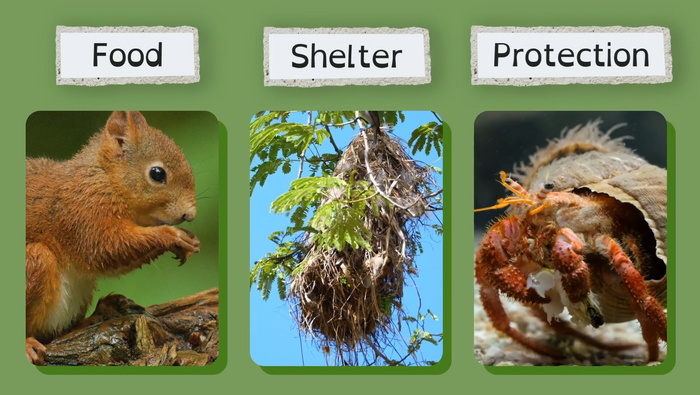
Special Relationships
All living things adapt to their homes, developing special traits over millions of years. Some creatures team up for mutual benefits, like clownfish and sea anemones. Others, like cattle and egrets, have a one-way friendship, while predators like lions and pythons eat their prey. These varied relationships support life on Earth.
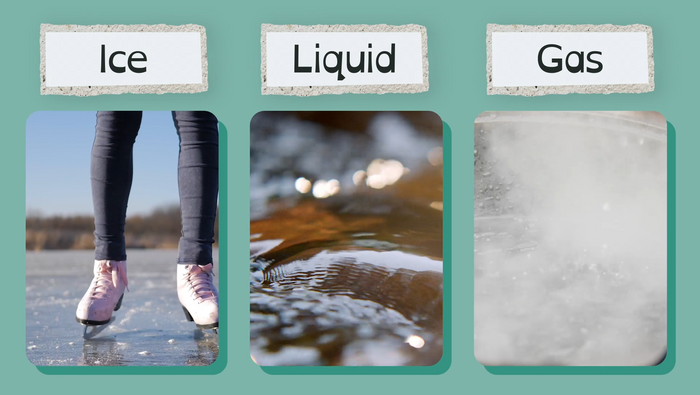
The Cycle of Natural Materials
You can buy many items at the store, like baseball bats and bicycles, but have you ever thought about how they're made? Baseball bats are carved from renewable wood, sourced from forests. Bicycles use strong steel, which is mined from the ground and can be recycled. Plastics, like water bottles, come from limited oil and gas resources. It's important to recycle to use these materials again, rather than wasting them.
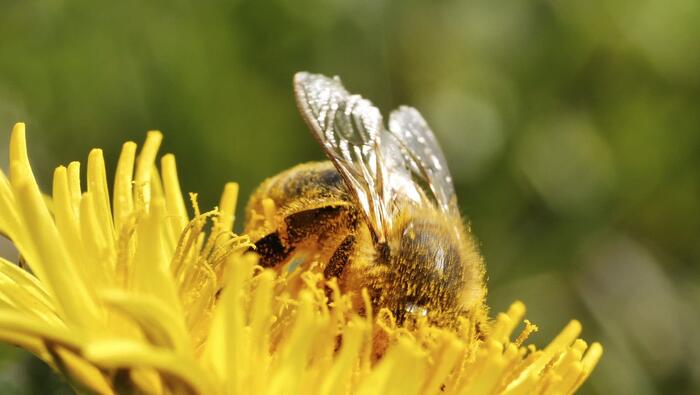
Ecosystem Services
Ecosystem services are essential gifts from nature, including food, clean air, water, and more. These services benefit both humans and all life on Earth. For instance, bees' pollination aids food growth, while wetlands store carbon and purify water. Protecting nature safeguards these vital services for our well-being and survival.
